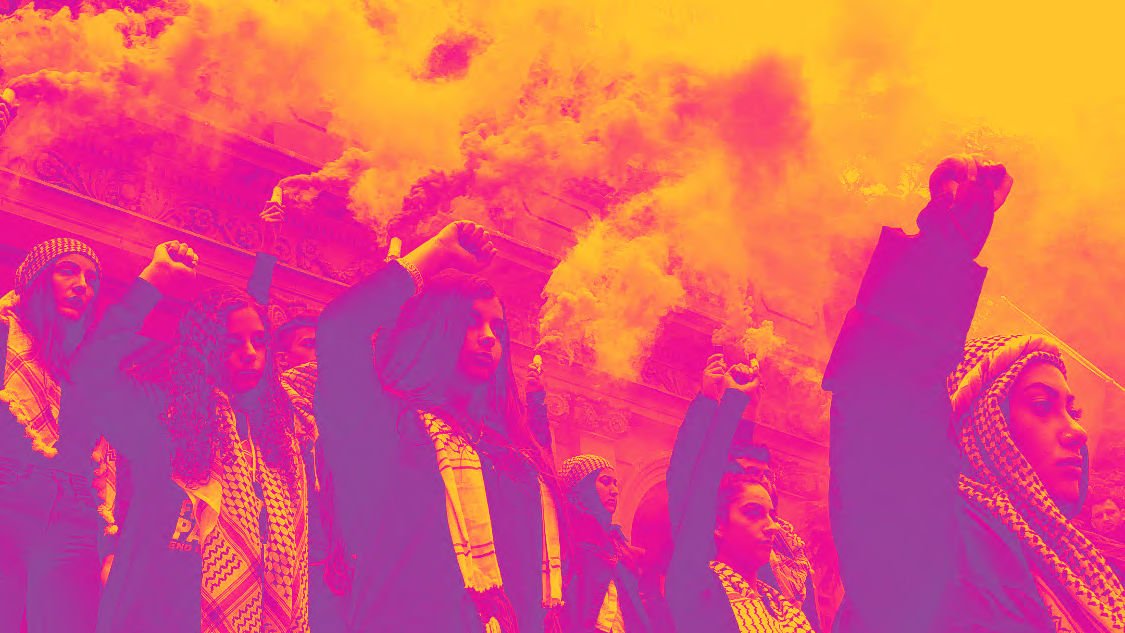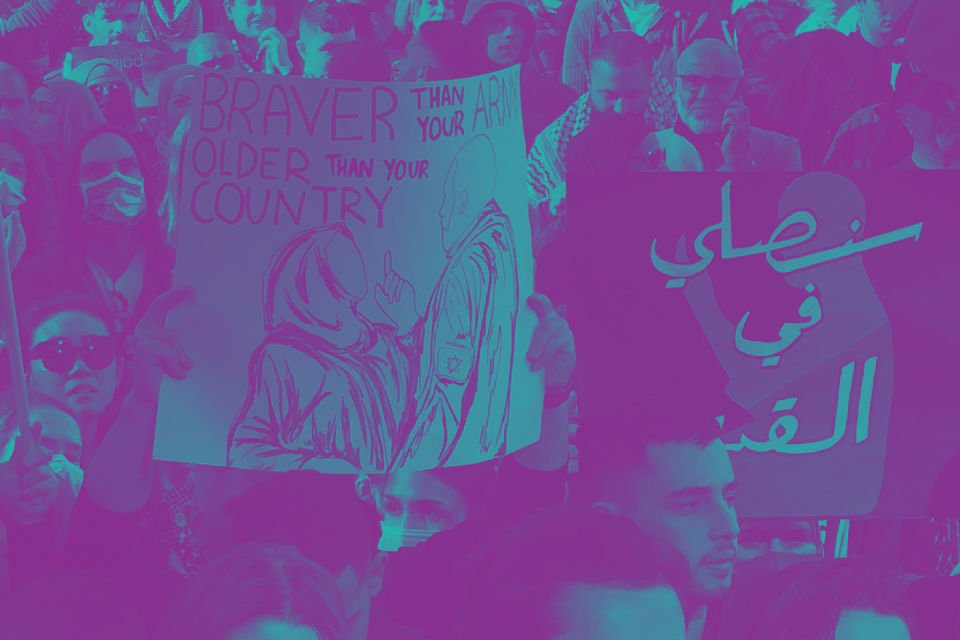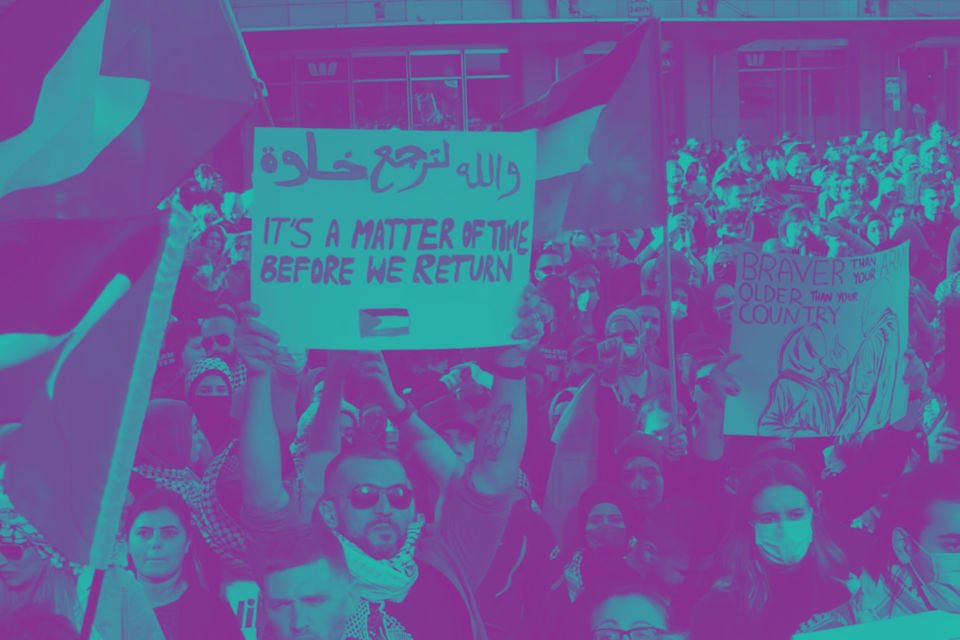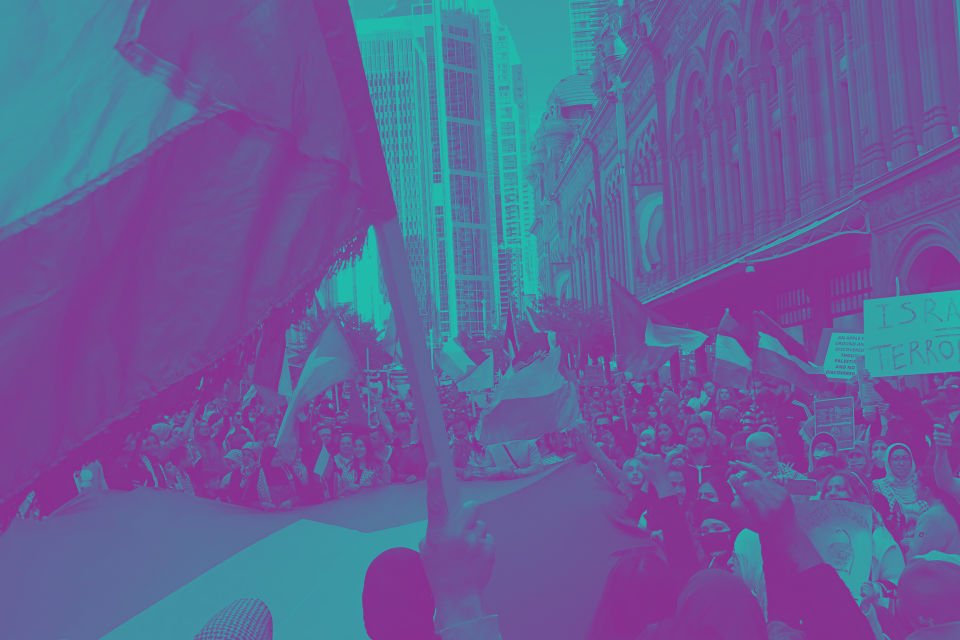Recently, the conflict in Palestine has been flooding our news feeds. Their tension with Israel has been an ongoing struggle and is understood as a highly complex and difficult to navigate issue. To get further clarification and amplify the voices of Palestinian people, editor Sevin Pakbaz sat down with the President of the Palestinian Youth Society at UTS, Nour Al Hammouri, and unpacked some of the recent updates around the issue.
SP: On behalf of the whole Vertigo team, I would like to thank you for your time today and acknowledge the burden BIPOC individuals often face when it comes to sharing and educating others regarding race, ethnicity, oppression, and politics. It's a privilege to access this information and we strongly urge our readers to facilitate their own understanding, and to not expect BIPOC individuals to educate them on these matters.
Firstly, could you introduce yourself and the the Palestinian Youth Society at UTS?
NH: My name is Nour Al Hammouri and I study Advanced Science here at UTS. The Palestinian Society started off as a cultural place for Palestinians and Arabs to connect and find each other on campus. It was about fostering a sense of belonging and sense of community. It also serves to educate people from a Palestinian background, Arab background, or from a non-Arab background to learn more about Palestine and the history behind its culture and politics. Palestinians are sick of the whole negative portrayal, that it’s just all war and brutality. So we want to try and highlight the more positive aspects of Palestine, whether it be our culture or history, or just the beauty of the land.
SP: What is your role and what events have you put on so far?
NH: I'm the President and the founder. So far we’ve had a Knafeh day, where we served Knafeh and Arabic coffee to anyone who was just passing by. We sort of just struck up discussions with people that were there. The main purpose was to get the members to know each other and have a little place on campus where we can share our food and share our culture among each other.
We’ve also had two forums; one with Students for Humanity about the Palestine and Sheikh Jarrah incident, where we explained what was going on, and explored and promoted what Palestine’s role in society is. Then we had another forum with the Ethnocultural Collective about discrimination against BIPOC people in academia and the Australian monoculture.
In that forum, we had two First Nations people, Students for Humanity, and myself representing the Arab perspective. We spoke about what sort of things we face, like discrimination, racism on campus and in greater Australia.
SP: What kind of things came up at these forums?
NH: There was talk about reverse racism and how it doesn't exist — you can't be racist towards someone who has no sort of disadvantages, no matter what they do.
Then we spoke about the importance of having a safe space for diverse, ethno people [at UTS]. We discussed that there's no place [on campus] where people can go and just mingle with other students. We also spoke about the importance of continuing to be yourself as a person of color, not to shy away from it, and not to be embarrassed by your identity.
SP: What role can students play in social activism and liberation movements?
NH: It starts off quite simple. It's just making sure that you’re centering the right voices, and listening to the correct people, and giving them a platform. For Palestinian activism, you should be centering Palestinian voices and listening to them — much like you would for other issues around the world — and sharing the resources that they share. Those are most likely going to be the resources that give an accurate depiction of what is happening back home. That’s what gets people thinking and gets people questioning what exactly is occurring. And I think recently, journalism for liberation movements has been stifled by the ABC and other media outlets with their bans on words like ‘apartheid’ and ‘conflict’. So you have to support people who aren't being censored, because an unfiltered perspective is important.
The people that I really trust and always go back to are the Palestinians in Palestine, and academics with research pertaining to the issue, because there's no filter or bias when they are saying something. So it's important that you are appreciating what they're saying and actually taking into consideration the risks associated when they are speaking out about what's happening back home.
SP: How are Australian university students (or Australians in general) connected to the struggle for Palestinian liberation?
NH: The Palestinian struggle almost parallels the First Nations Indigenous struggle here in Australia. We’re both victims of colonisation and European colonial forces. Invading forces came into Palestine, similar to the British forces that came into Australia and completely ruined the Indigenous People's culture and land. They both work on erasure; they work on removing everything that is indigenous to that land. That's the similarity between Australia and Palestine. Essentially, you can't be against colonial forces in Australia and not be against it everywhere else. It's the same thing. It's against colonial occupation of a land that doesn't belong to them.
SP: Has social media helped spread the Palestinian message?
NH: I feel like social media has been the biggest force in promoting change. The two twins Mohammed and Mona El-Kurd have literally taken on Israel, just by posting exactly what is happening back in Palestine. They do not deviate from the literal truth. So social media has been Palestine’s biggest resisting force. This is also quite obvious when you look at the directed attacks on news agencies and media outlets. Israel tries to limit data, the Internet, and electricity which just shows how powerful social media is.
There is definitely misinformation floating around too, whether it be from Palestinians themselves, or from people on the opposing side. However, social media has shown a lot of effectiveness in promoting the right picture of Palestine in recent times. There are a lot of people coming out now and correcting other people's wrongs, and showcasing exactly what is happening. Like I said before, with the censorship that has been going on, it just proves that the use of social media was threatening to certain people.
SP: Can you talk about the events of the recent rallies held in support of Palestinian people?
NH: Yeah, the first protest had around 20 to 30 thousand people in attendance. It was really great. The environment was very moving; every single person was there for the same reason. It sort of energised everyone to be expressive of their sadness and anger. This has continued and there's a fifth one happening soon. These protests have highlighted that there is support in Australia for Palestinian liberation, and that the Australian government’s complicity with Israel is not reflective of the Australian population.
SP: I guess moving forward, how can we keep the momentum going and continue to support the Palestinian liberation movement?
NH: While we do appreciate posts on social media, they aren't going to solve the issues. Instead, it's important to keep updated on what's happening. Keep educating, keep reading, and keep centering the right voices. Just keep sharing, keep being aware. And keep showing up. We love to see support from anyone. Follow @uts.palsoc; we continually put out posts and updates with exactly what's going on in Palestine. We also share events that include charity events, fundraisers, rallies, and any sort of activism where you can get involved.





 -
-